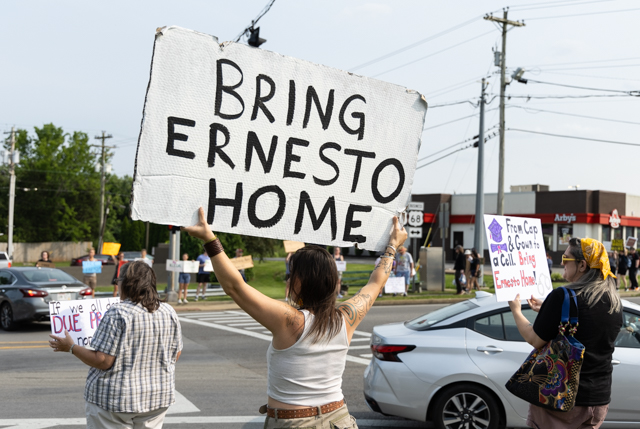Out and about Kentucky style: Leonard’s Losers
Published 9:47 am Thursday, March 9, 2023
The Cadillac pulled into the circle drive that fronted the stately Athens Country Club in Athens, Georgia. The driver was Leonard Postero.
You may not recognize the name, but if you are over 40 you might recall the football prognostication radio show “Leonard’s Losers” who went by the name of Leonard Postoasties on his show.
It was Nov. 28, 1990, and I was in town to broadcast the Western-Georgia basketball game along with play-by-play legend Wes Strader. We were staying, along with the Hilltopper team, at the Holiday Inn.
Paul Just, a legend in his own right, was the Sports Information Director and had gotten to know Leonard Postero over the years.
“Leonard is going to pick us up and take us to lunch,” Just said at the time.
Of course Wes and I knew who he was. His show was heard every Friday and Saturday mornings, predicting the losers in high profile games, throughout the South. His folksy delivery was a cross between Jerry Clowers and Carl Hurley, and no one could describe a school’s football team like Leonard. Pachyderms for Alabama, giant water lizards for Florida, Pope’s pupils for Notre Dame, and kitten felines for Kentucky were just a few.
In an altered voice his sidekick was Percy Peabody who did the honors of introducing Leonard every week.
Leonard was a big deal at the Athens Country Club. To prove it he parked his car directly in front of the club, obviously an area reserved for a drop-off or pick-up, but not to park your car, lock the doors and go inside for lunch.
Of course, I don’t recall what I ate. I was so engrossed with Leonard’s stories, I may have only had a glass of ice tea. After lunch, believe it or not, his car was still parked where he left it. I had thought for sure it would be towed. We proceeded to head toward Leonard’s home, where he also had his recording studio. On the way, sitting in the back seat with Paul Just, I asked Leonard a question that Wes Strader never let me forget.
“Leonard have you lived in Athens all of your life,” I asked. Without missing a beat the quick-witted radio star looked over his shoulder and replied, “Not yet.”
Strader could not stop laughing. “That’s good Leonard,” he said. For years he reminded me about my question.
That night, however, took a turn for the worse. It came about unexpectedly for me.
Twenty years earlier, the Hilltoppers had made history in Georgia’s home arena, Stegeman Coliseum by defeating UK and Ohio State to advance to the 1971 Final Four in Houston. And now here was first year Western coach Ralph Willard looking for his first win as a Hilltopper coach. Georgia at the time was ranked 17th nationally. Bulldog coach Hugh Durham was familiar with the new coach from when Willard was an assistant to Rick Pitino at UK.
For the Hilltoppers, the night did not go well. The team made up of Harold Tompkins, Darnell Mee, Jack Jennings, Joe Lightfoot and Gip Palm were hammered 124-65. It still stands as the most lopsided loss in Western’s history.
I recall later that evening back at the hotel Willard, Strader and myself were discussing the game in the hotel over a beer. No one could find a single thing to say good about the game.
“Fifty-nine points,” I recall Willard mumbling. “He did this to us because of Rick.”
Reading a little bit between the lines, Willard was referring to Hugh Durham’s competition with Rick Pitino’s Wildcats.
“In my decades of traveling with our basketball team it was one of the more interesting game-day afternoons,” Just said recently. “Needless to say, lunch and the afternoon with Leonard was the highlight of that day.”
For the record, Western had lost its season opener at Southern Illinois before the Georgia game. Finishing 14-14 for a year that included losses to Murray, Austin Peay, Louisville, and UK. Willard’s first win came against Bowling Green State in Diddle Arena.
Georgia didn’t have the season it had hoped for, finishing 17-13 and sixth place in the SEC.
By the way, Leonard Postero at the height of his popularity, had more than 1,400 radio stations, including Armed Forces Radio, broadcasting his show. He retired in 1999, and died in 2001.
There’s no excuse, get up, get out and get going! Gary P. West can be reached at westgarypdeb@gmail.com.






